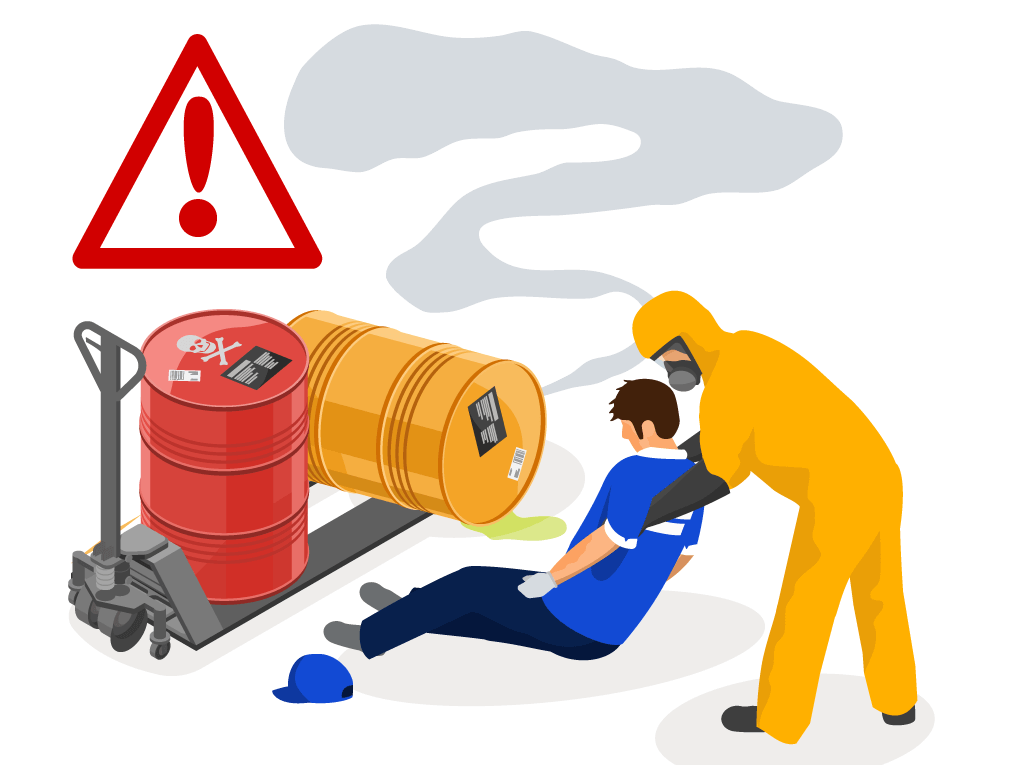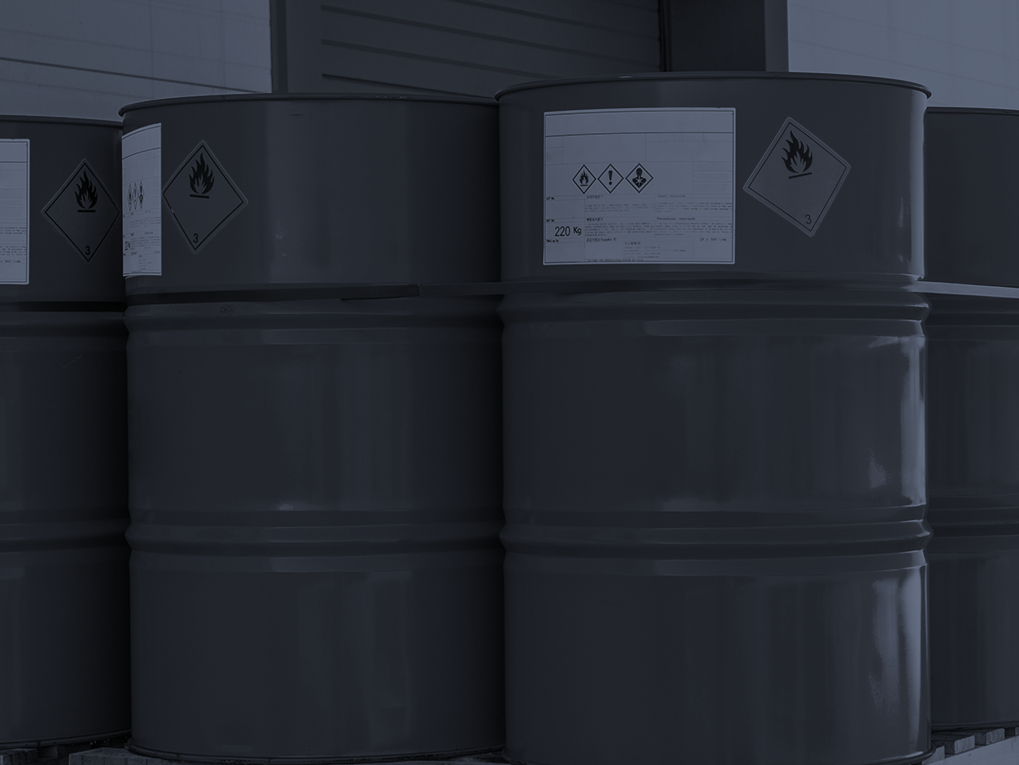Hazardous waste management is an essential practice that plays a crucial role in safeguarding employee well-being, protecting the environment, and ensuring operational efficiency and financial stability.
The consequences of mismanaging hazardous waste are severe and multifaceted, including health risks, organisational disruptions, legal repercussions, environmental degradation, and substantial financial burdens.
Understanding these consequences is vital. Businesses must recognise the importance of implementing and maintaining effective hazardous waste management strategies to mitigate risks and secure a sustainable future.
What Are the Consequences of Mismanaging Hazardous Waste?
#1 Risks to Employees: Illness, Injury, and Fatality
One of the most immediate and concerning consequences of mismanaging hazardous waste is the risk it poses to employees. Exposure to hazardous wastes can lead to serious health risks, as these materials often contain toxic chemicals and volatile organic compounds that can affect human health.
Employees working in proximity to improperly handled hazardous waste materials are at risk of developing chronic health conditions, experiencing acute poisoning, or even facing life-threatening situations.
Ultimately, the ways in which businesses handle hazardous waste could have enormous consequences for the wider team. For example, exposure to volatile organic compounds can result in immediate symptoms like headaches and dizziness, escalating to more severe liver or kidney damage over time. Employees exposed to asbestos can also develop mesothelioma, a type of cancer. This direct causality highlights the urgent need for protective measures and education on handling hazardous materials.
#2 Organisational Inefficiencies

The mismanagement of hazardous wastes permeates various layers of an organisation, from day-to-day operations to long-term strategic planning.
Firstly, hazardous waste mismanagement can cause immediate disruptions in the workplace. Incidents such as spills or fires related to improper handling or storage of hazardous materials can halt production lines, leading to major downtime. The need for extensive cleanup and the potential for equipment damage can exacerbate these disruptions, directly impacting the company’s productivity and operational efficiency.
The repercussions of hazardous waste mismanagement also extend beyond immediate operational concerns. Companies may find themselves forced to reallocate critical resources away from key areas such as research and development, expansion efforts, or customer service improvements to address issues arising from mismanagement. This diversion of resources affects not only the company’s growth but also its ability to innovate and respond to market demands.
Alongside resource allocation challenges, hazardous waste mismanagement can lead to inefficiencies in waste management processes. Disruptions in waste streams and waste generation workflows can complicate the logistics and planning associated with waste handling, leading to further inefficiencies and potential operational bottlenecks.
#3 Failed Inspections
Failed inspections are a powerful repercussion of hazardous waste mismanagement and non-compliance with UK environmental regulations. When an organisation fails to comply with the strict rules set by UK ecological and health authorities, it endangers the safety of its employees and the surrounding environment.
In the UK, inspections are vital to ensure that hazardous waste is managed, stored, and disposed of following the standards established by the relevant local authorities. If your business fails such an inspection, you must address the deficiencies identified. This might involve a substantial financial cost to correct the issues, implement new procedures, or upgrade equipment and facilities.
Persistent failures can also lead to heightened scrutiny from regulatory bodies, potential legal action, and reputational damage. A reputation for poor environmental and safety management can undermine customer trust, investor confidence, and the company’s overall market standing.
Failed inspections signal underlying problems in an organisation’s waste handling and disposal practices. They underscore the necessity for thorough strategies, ongoing training, and a culture of adherence to ensure that hazardous waste is managed efficiently and compliantly.
#4 Environmental Hazards
The environmental impacts of mismanaging hazardous waste are significant and widespread, affecting soil, water, and air quality. Improper disposal of hazardous waste can lead to soil contamination, harming microorganisms and disrupting soil ecosystems, which are crucial for nutrient cycling and plant growth.
Water pollution is another grave concern, as hazardous substances can damage aquatic life and enter the food chain, posing risks to human health and disrupting local economies reliant on water resources. Air pollution from hazardous waste releases toxic substances which can be inhaled by those in the surrounding area. The interconnectivity of these impacts underscores the urgent need for rigorous hazardous waste management to safeguard our planet and future.
#5 Unnecessary Expenses
The financial implications of hazardous waste mismanagement are substantial. Organisations face increased insurance premiums, hefty fines for breaking compliance with government laws, and the costs associated with cleaning up environmental contamination. The long-term expenses related to health care for affected employees, legal fees, and reputational damage can be exorbitant. Investing in proper hazardous waste management practices is a legal and ethical necessity and a financially prudent strategy.
The financial toll of mismanaging hazardous waste is multifaceted. For example, cleaning up a single hazardous waste spill can cost an organisation millions, not including fines or legal fees. Insurance premiums could also increase due to the perceived risks, putting more strain on your financial resources. Breaking down these costs provides a concrete understanding of the financial imperative to manage hazardous waste effectively.
Proactive Measures for Hazardous Waste Management
Hazport can help you identify, manage and dispose of your hazardous waste with our cost-effective waste solutions. From chemical waste to lab packing, we help companies across the UK manage their hazardous waste to align with UK regulations.
Managing hazardous waste is important for safeguarding human health, protecting the environment, and building your company’s reputation. Companies must adhere to a compliance calendar, understand the risks associated with hazardous waste disposal, and commit to appropriate waste management practices. By doing so, they can mitigate the potential risks, avoid the costly consequences of non-compliance, and contribute positively to environmental protection and public safety.










